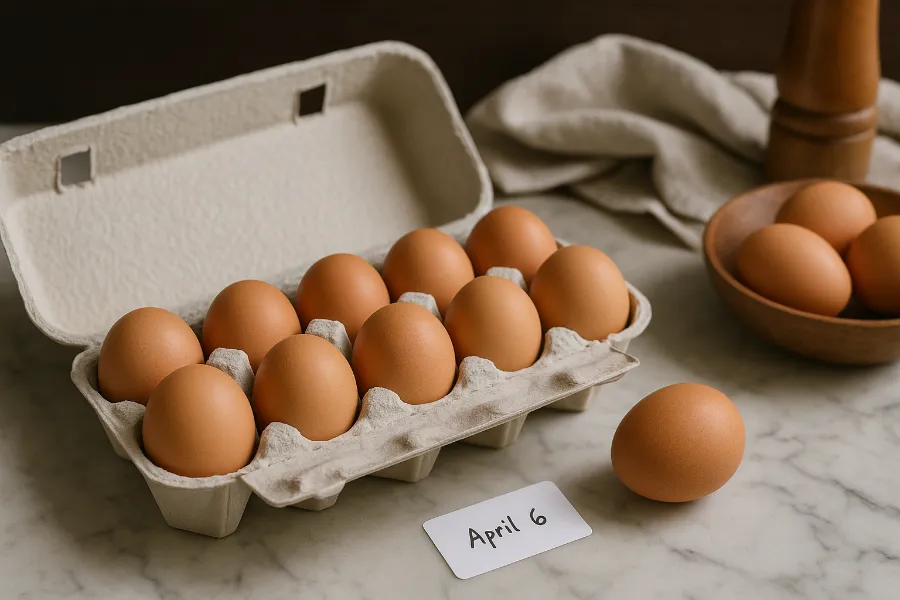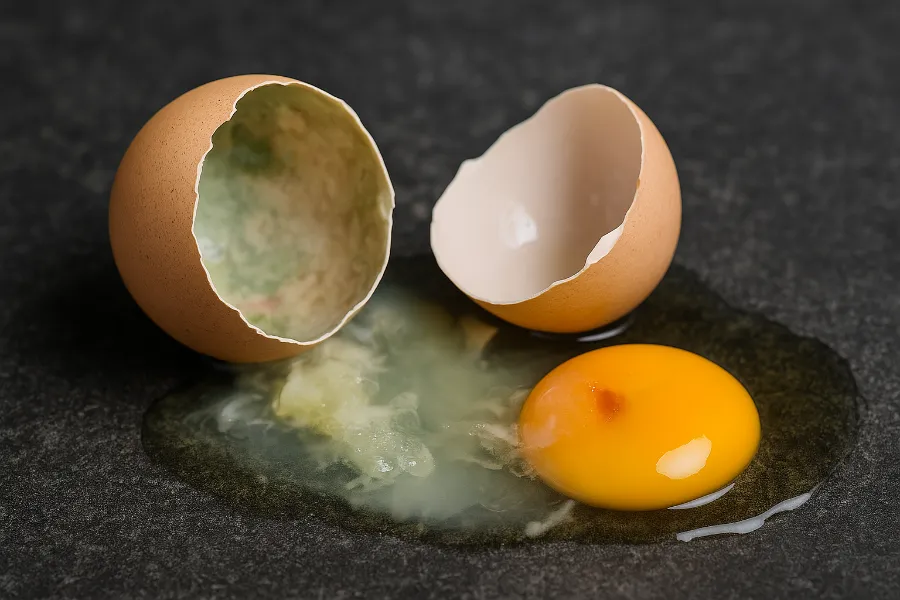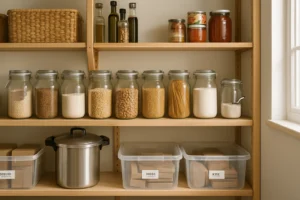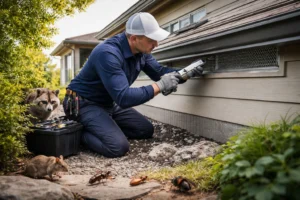The other morning, I stood in front of my fridge holding an egg like it was some kind of mystery puzzle. The carton was shoved behind leftovers, and I couldn’t even remember when I’d bought it. That little voice in my head asked, “are my eggs still good to eat?” If you’ve ever stared at a questionable egg, wondering if you should toss it or trust it, you’re not alone.
Over the years (and after ruining a few breakfasts), I’ve learned how to read every clue an egg gives off—its look, its smell, and even how it behaves in water. Let me walk you through the methods I use at home, plus the tricks chefs rely on, so you’ll never have to second-guess an egg again.

Egg Yolk
The egg yolk is like a built-in freshness meter.
- When eggs are fresh, the yolk stands tall, rounded, and almost bouncy. It looks vibrant and golden.
- As eggs age, yolks flatten out and sometimes start to break more easily.
- If the yolk looks watery or gives off even the faintest off smell, that’s a red flag.
Whenever I ask myself are my eggs still good to eat, the yolk is one of the first things I check. For me, a yolk that sits high and firm is a green light for scrambled eggs, poaching, or my favorite—whisked into a silky homemade hollandaise.
Egg Whites
Egg whites (or albumen) tell their own story too.
- Fresh whites are thick, cling to the yolk, and don’t spread too far when cracked into a pan. They don’t really smell like much—just clean and neutral.
- As eggs age, the whites get thinner and watery. They spread across the pan like spilled milk. Sometimes you’ll even notice a faint sulfur smell, which means they’re definitely not at their best.
- Spoiled whites? Slimy, discolored, and smelly.
When I bake, I rely heavily on fresh whites. They whip up fluffier meringues and give cakes that tender lift. Watery or questionable whites are where I draw the line.
Spoiled Eggs
Nothing ruins a recipe faster than spoiled eggs. Trust me, I’ve cracked a bad one right into pancake batter before, and there’s no saving it.
Here’s how I recognize them now:
- Strong, unmistakable sulfur smell
- Slimy or watery textures inside
- Yolk and white that don’t separate well
- Odd colors—greenish, pink, or rainbow-like sheens
If I see or smell any of these, I don’t bother with second guesses. Spoiled eggs go straight in the trash. And honestly, once you’ve had to scrub spoiled egg smell off a mixing bowl, you’ll never risk it again.
Sulfur Smell
The “rotten egg smell” is unforgettable. It comes from hydrogen sulfide gas, which forms as eggs break down. The human nose is so sensitive to it that even the tiniest amount sets off alarms.
- A faint sulfur smell can sometimes mean the egg is just old, not unsafe. I still do other tests to be sure.
- A strong sulfur smell? That’s an instant no.
One thing I’ve learned: not all sulfur smells are signs of danger. Overcooking fridge eggs—like when I’ve left hard-boiled eggs boiling a bit too long—can create a harmless sulfur smell and even leave a greenish ring around the yolk. Safe to eat, just less pretty.

Fridge Eggs
I keep my eggs in the fridge because it really does help them last longer. But how you store them matters.
- Always keep them in the original carton. It protects them from odors (trust me, eggs will soak up garlic smells fast).
- Don’t stash them in the door. The temperature changes every time it’s opened, and eggs hate that.
- Pointed end down helps the yolk stay centered and fresh.
- Keep them at 40°F (4°C) or below.
Even fridge eggs don’t last forever, though. That’s why I rotate mine: new ones to the back, older ones up front. That way, I’m not stuck with mystery eggs when I’m craving an omelet.
Crack Test
When in doubt, I go straight for the crack test.
Here’s my routine:
- Crack the egg into a small bowl, never directly into my batter or pan.
- Take a look—yolk high or flat? Whites thick or runny?
- Take a sniff—neutral or smelly?
- Good eggs have a neutral smell and a yolk that stands tall.
- Questionable eggs spread out too much, or smell faintly sulfurous. I don’t risk it.
- Spoiled eggs announce themselves immediately with a strong odor.
This method has saved me so many times. Nothing ruins a recipe faster than cracking a spoiled egg straight into the mix.
Egg Storage
Learning good egg storage habits has saved me both money and stress.
Here’s what works:
- Keep eggs in their carton for protection.
- Label the carton with the date you bought them.
- Use the oldest ones first.
- If you’re lucky enough to have backyard hens, don’t wash the eggs until you’re ready to use them. Washing removes the natural bloom that keeps bacteria out.
With these simple habits, I’ve cut down on waste and can almost always answer are my eggs still good to eat with confidence before even testing.
How I Decide if Eggs Are Still Good to Eat
Here’s my quick checklist whenever I’m unsure:
- Look: Yolks high and whites thick = good. Flat or watery = questionable.
- Smell: Neutral = good. Sulfur or sour = bad.
- Float test: Fresh eggs sink, old ones tilt, spoiled ones float.
- Crack test: The final word—if it smells off after cracking, it’s out.
After doing this for years, it’s almost second nature. I can usually tell within seconds whether an egg is a keeper.

Final Thoughts
If you’ve ever stared at a carton and wondered, are my eggs still good to eat, the good news is—you don’t need to guess anymore. Between checking the yolk, inspecting the whites, sniffing for sulfur smell, and using simple tricks like the crack test, you’ve got all the tools to know for sure.
For me, it’s about respecting the egg. When they’re good, they transform dishes from simple to extraordinary. When they’re spoiled, they remind me that food safety always comes first. Either way, eggs deserve our attention—and maybe a little gratitude—for being one of the most versatile ingredients in the kitchen.
FAQs
Check the yolk and whites after cracking, sniff for any sulfur smell, and try the float test. Fresh eggs sink, while spoiled eggs float.
A strong sulfur smell almost always means the egg is spoiled. If the smell is faint, confirm with a crack test before deciding.
Yes. Fridge eggs last 3–5 weeks beyond the sell-by date if stored properly, while room temperature eggs spoil faster.
Watery whites usually mean the egg is older but not necessarily spoiled. They’re fine for baking but not ideal for poaching or frying.
That harmless odor comes from a chemical reaction between iron in the yolk and sulfur in the white during overcooking. The egg is still safe to eat.
Keep them in the carton, pointed end down, on a fridge shelf—not the door. This prevents odor absorption and keeps them fresh longer.
Yes. Spoiled eggs can contain harmful bacteria like salmonella, leading to foodborne illness. When in doubt, throw them out.













